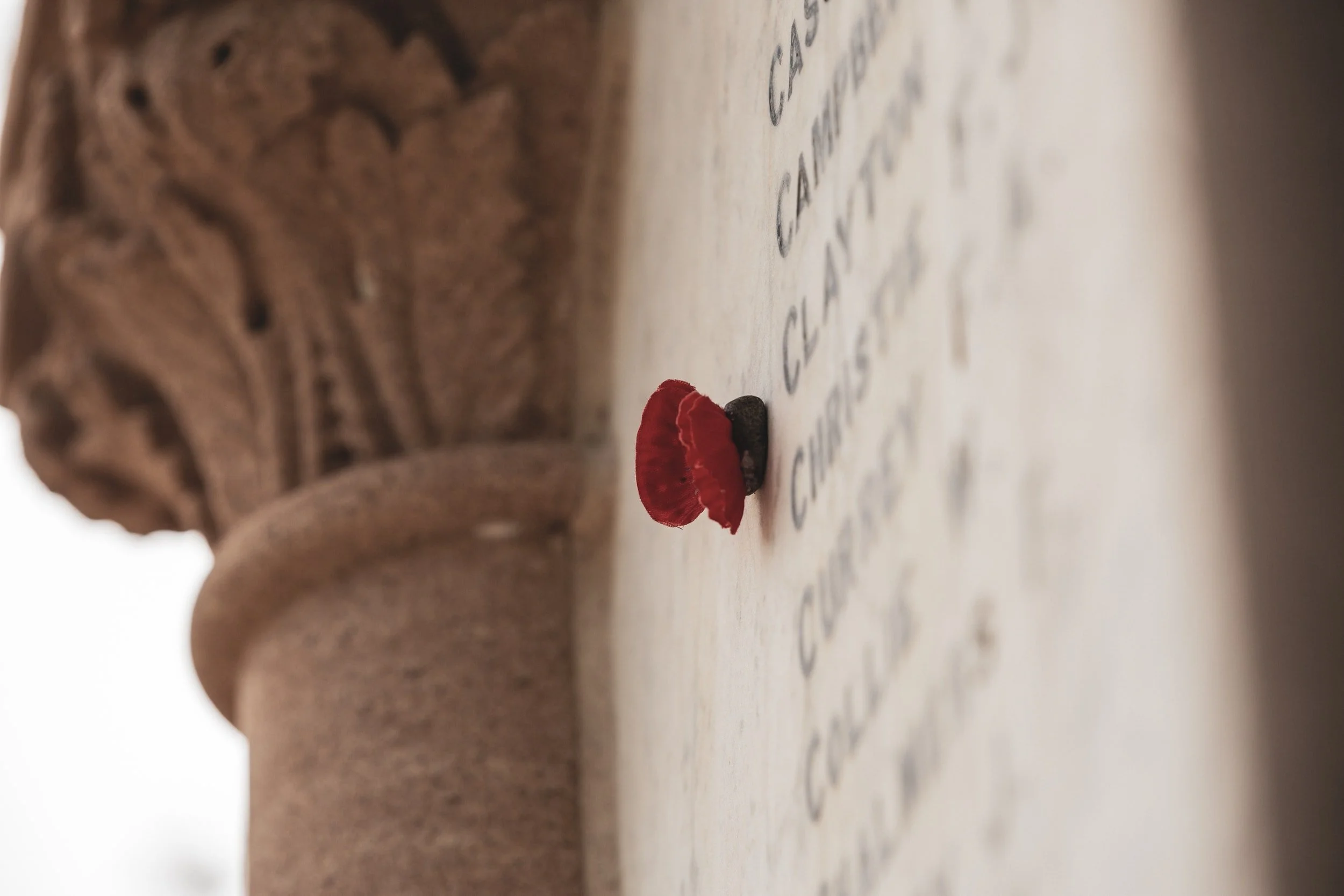My earliest memories of ANZAC day were the commemorations organised by my Primary School in Box Hill. Until then, I knew little of ANZAC day and what it all meant, and that’s despite the fact that my grandfather fought in WWII (he was not an ANZAC) and my uncle Kevin completed two years of National Service. My grandfather returned from that war maimed, but was able to hold down a job as an engine driver before his health deteriorated.
No one ever discussed the war. It wasn’t until I was in my twenties that my uncle inadvertently hinted at his father’s terrible injuries, but that was it. No mention of it ever again. My grandfather died when I was five, his injuries complicating his health later in life. But the war, and ANZAC Day in particular, was never a topic of conversation.
Most of what I learned about ANZAC Day was first at Primary School and then later in Secondary School. The contrast between those experiences was stark.
The Primary School pre-ANZAC Day commemorations each year were conducted with great respect and reverence – and in a spirit of deep gratitude for the sacrifice of thousands of young Australians who lost their lives on the beach of Gallipoli and beyond in the other theatres of that war. Many classmates wore the medals of their grandfathers. We would sing a hymn (O Valiant Hearts), The Ode was read by the school captain, and the headmaster, Mr. Jenkins, would lead the whole school in a prayer – every head was bowed, some teachers even quietly wept as they recalled memories of loved ones lost, but who had never come home. And a bugler would play The Last Post. These commemorations had a huge impact on me. As much as I could comprehend back then as a 9-year-old, I was deeply moved – and sobered - those men and women had answered the call of duty on behalf of our nation to fight for freedom thousands of kilometres from home.
High School ANZAC Day commemorations were entirely different. It was the sixties (and seventies), and the Vietnam war was approaching its crescendo. The Americans were losing against the North Vietnamese, and were ramping up the horrendous bombing of Hanoi. There were huge protests in the capital cities of Australia – tens of thousands at a time – protesting against an “unjust war”. The anti-Vietnam war protests came to a head on July 4th, 1968, where, in Melbourne’s CBD, a pitched battle was fought between protestors and hundreds of police. It was violent! Unprecedented! Frightening!
Many of my newly minted High School teachers attended those protests – and proudly regaled us students of their exploits against the police. And so, when ANZAC Day came around, the rage they felt about the “unjust war” the “imperialist Americans started” was transferred onto our own sacred day. I clearly remember three of my teachers lecturing (haranguing, really) the class on why ANZAC Day was a “glorification” of war, and a “fake folklore legend creating false heroes” when “Australia was thrashed by the Turks at Gallipoli”, and we should never be “celebrating a humiliating defeat”. And that was just the beginning! Several teachers were at pains to disrupt school commemorations and recast the ANZAC story so us gullible teenagers were not brainwashed with false ideas of glamorous Aussie heroes, and such.
I remember so clearly in those days a deep sense of outrage as the sacrifice of so many Australians was politicised, belittled and trampled on. These teachers (and that was most of them in my day) were pushing anti-something agenda and abused ANZAC Day commemorations in order to do so. So wrong.
I was shocked. In none of my Primary School experiences had this ever happened. ANZAC Day was not for celebrating anything. Flawed and bungled allied command strategies aside, it was a time to pause, to reflect, to try to come to grips with the enormity of the loss of life, and to remember, with deep gratitude, those who gave their lives in the cause of freedom. Such a huge sacrifice to reconcile. It was a day to remember and respect the very cost of freedom - ultimately, it is blood – and to honour those who had fallen. ANZAC Day is not the glorification of heroics, but the recognition of the most noble human trait of all … the giving of one’s life for others in the cause of freedom. For me the greatest evidence of this was in those who returned from war – and who never wanted to talk about its horrors that never faded from their minds.
ANZAC Day is also an important way in which our nation remains grateful, and humbly grounded in the knowledge that freedom must never be taken for granted.
The ultimate cost of our freedom as born-agains was the blood of Christ. This must never be taken for granted, either. In the Lord’s Supper we remember, and yes, we do celebrate the new life we have in Him. But as we pause and reflect, we are humbly grounded, yet again that …
Romans 5:8 (NIV)
“While we were still sinners, Christ died for us.”
And therefore …
Colossians 1:10 (NIV)
“… so that we may live a life worthy of the Lord and please him in every way: bearing fruit in every good work, growing in the knowledge of God, …”
Think on these things …
Ps Milton

